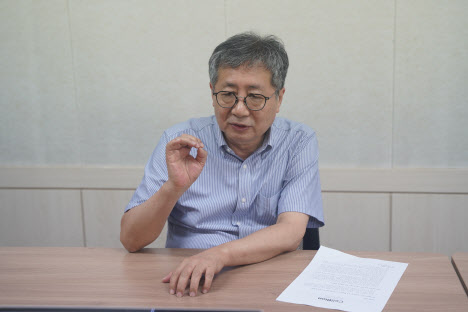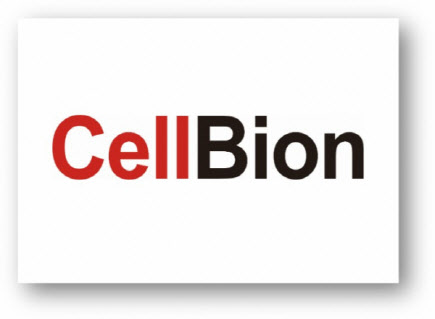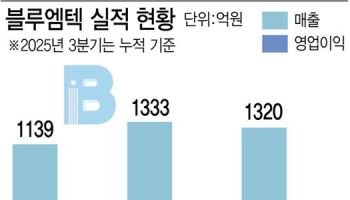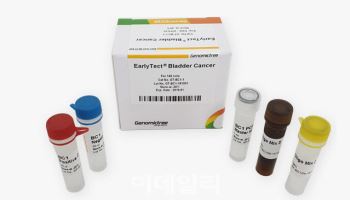Unauthorized reproduction or distribution is illegal and subject to criminal penalties.
Pharm Edaily enforces a zero-tolerance policy and will take strict action.
[Yu Jin-hee, Edaily Reporter] SEOUL, South Korea-Cellbion has officially launched a clinical collaboration with global pharma giant Merck (MSD), accelerating its roadmap to become a leading player in the radiopharmaceutical industry. The company aims to evolve into a fully integrated pharmaceutical firm by advancing new drug commercialization, expanding into domestic and global markets, and establishing a radiopharmaceutical manufacturing hub in the Asia-Pacific region.
According to industry sources on June 4, Cellbion is preparing to submit an Investigational New Drug (IND) application to South Korea’s Ministry of Food and Drug Safety for a combination therapy trial involving its radiopharmaceutical candidate Lu-177-DGUL and Merck’s immune checkpoint inhibitor Keytruda (pembrolizumab). The Phase 1 trial will target metastatic castration-resistant prostate cancer (mCRPC) patients who have not previously received taxane therapy.
The companies are focusing on a patient population that comprises 20~30% of the overall prostate cancer market. The trial will primarily evaluate progression-free survival (PFS) and overall survival (OS), with initial endpoints assessing safety and secondary endpoints examining efficacy metrics such as radiographic PFS, OS, and objective response rate (ORR).
The combination trial is designed as a strategic prelude to both global sales and potential out-licensing of Lu-177-DGUL. It also forms a core part of Cellbion’s mid-term growth strategy. With the first-phase goal of commercializing Lu-177-DGUL expected to take shape within this year, the company is now moving forward with its second-phase execution plan.
Cellbion has already completed patient dosing for a domestic Phase 2 trial of Lu-177-DGUL. The study enrolled 91 patients with late-stage prostate cancer unresponsive to all other treatments, with 73 patients forming the primary analysis cohort. Topline results evaluating safety and efficacy are currently under analysis.
Lu-177-DGUL had previously been designated as a clinical-stage new drug by the Korea Drug Development Fund (KDDF), and was granted both Orphan Drug designation by the MFDS in 2021 and Global Innovative Product Fast Track (GIFT) status in 2023. Upon successful Phase 2 completion, Cellbion aims to pursue conditional approval in Korea. The company expects to submit its application—including ORR and other key efficacy data-by the third quarter of 2025, targeting domestic launch in the first half of 2026.
Cellbion estimates that Lu-177-DGUL could generate KRW 21 billion (approx. $15 million) in annual domestic revenue by 2026. The product’s out-of-pocket cost is expected to be set at KRW 27 million per dose. For comparison, Novartis‘ radiopharmaceutical prostate cancer treatment Pluvicto generated $980 million (approx. KRW 1.4 trillion) in global revenue in 2023.
With patient enrollment complete, the company has also begun advancing global licensing negotiations. Industry observers estimate the drug’s value could exceed KRW 1 trillion, contingent on clinical success in late-stage prostate cancer. This valuation is supported by strong market fundamentals: according to Global Information Inc. (GI), the global prostate cancer therapeutics market is expected to grow from $14.8 billion in 2022 to $28.4 billion by 2030.
 | | Kwon Kim, CEO of Cellbion (Photo courtesy of Cellbion) |
|
Founder and CEO Kwon Kim’s ultimate vision of establishing a radiopharmaceutical production base is also gaining momentum. The Korean government recently launched initiatives to produce key isotopes like Actinium-225 (Ac-225) and Iodine-131 (I-131) domestically, which are currently entirely imported and in short supply. Cellbion is expected to play a key role in this effort. The Korea Institute of Radiological & Medical Sciences received the nation’s first approval in May to produce Actinium via cyclotron technology.
Radiopharmaceuticals are formed by combining radioactive isotopes—which emit radiation used in diagnosis and treatment—with targeting ligands that bind to cancer cells. Actinium is mainly used to treat neuroendocrine and prostate cancers, but access has been limited due to the lack of domestic supply, forcing patients to seek treatment abroad or through clinical trials.
To address this, the government has initiated the formation of the “Alpha Therapeutics Consortium,” comprising companies such as SK Biopharmaceuticals, Cellbion, and Saehan Industries. The group will collaborate on R&D for alpha-emitting isotopes such as Actinium and Astatine (At-211), pursue regulatory reforms, and develop national R&D projects.
A Cellbion spokesperson stated, “The government is fully committed to supporting domestic isotope production infrastructure and expanding radiopharmaceutical R&D. If supply can be secured in a timely manner through government-led programs, it will significantly accelerate our drug development timeline.”
Looking ahead, Cellbion aims to position South Korea as the “Asia-Pacific hub for radiopharmaceuticals.” Given the 5~6 day shelf life of these treatments, rapid distribution is critical-posing challenges for global firms seeking to penetrate Asian markets. Cellbion plans to establish a manufacturing base in Incheon to facilitate quick delivery to China, Japan, and other key countries.
“Our vision is to make Korea the Asia-Pacific hub for radiopharmaceuticals,” said the spokesperson. “We’re currently reviewing options including building a cGMP-compliant manufacturing site to support that goal. This would solidify Korea’s status as a global pharmaceutical and biotech powerhouse.”











![인도, 글로벌 저가 제네릭에서 바이오 허브로 탈바꿈[제약·바이오 해외토픽]](https://image.edaily.co.kr/images/vision/files/NP/S/2026/02/PS26020700379b.jpg)